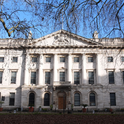Shortly after the EU referendum, I spoke to someone who had just quit a leading Brexit-supporting think tank. The reason, I was told, was that it had been taken over by devotees of Ayn Rand, who thought a weakened Britain outside the EU the ideal place in which to bulldoze established laws and institutions and build from scratch the libertarian paradise envisaged by their idol.
Though that ambition may appear extreme, the belief that Brexit offers a historic opportunity to set Britain’s economy free runs deep among many right-wing politicians. They dream of slashing burdensome bureaucracy and intrusive regulation and creating “Singapore-on-Thames,” a lightly regulated small-government island where anything legal goes.
But though the Brexiteers won the referendum, their hopes of realising this vision have been severely disappointed so far. Indeed, Covid-19 and their own failure to grasp how immensely complex a task disengaging from the EU is proving to be are conspiring to produce the exact opposite of what they seek.
If the Covid crisis has shown one thing, it is that most Britons do not hanker right now for a minimal night-watchman state. On the contrary, you do not have to dig far into the opinion polls to see that they want strong and decisive political leadership that tells them what to do. When the government decided to relax the lockdown and rely on people to keep themselves safe, many complained that it was stepping back from its responsibilities too hastily. And when ministers have been faulted over setting rules, it has been because they were not clear enough, not because they were too numerous or restrictive.
Of course, some have objected that having to wear face masks infringes on personal liberty. But their numbers have been tiny compared to protesters in the US or normally rule-loving Germany.
Nor do libertarian principles sit easily with Boris Johnson’s pledge to “level up” Tory Red Wall constituencies, an endeavour that will require increased public spending. That hardly seems consonant with the doctrine of low taxes, fiscal parsimony, self-reliance and non-interventionism advocated by right-wing and libertarian MPs in Johnson’s own party, whom he appears so eager to appease.
Covid has greatly magnified that contradiction by blowing a vast hole in the public finances that will have to be filled eventually by higher taxes. Indeed, Steve Baker, a leading libertarian MP, came close to tears earlier this year when going against his ideological creed to vote reluctantly for a large economic rescue package.
The consequences of Brexit are set to widen still further the gulf between reality and the libertarians’ idealism. They sold the project on the promise that unshackling Britain from EU regulation and red tape would transform it into a paragon of free markets. Yet they have appeared slow to recognise that efficient operation of those markets requires Britain to replace EU rules with new ones. Indeed, Dominic Raab, currently foreign secretary, seemed surprised when that was explained to him by a former head of the Foreign Office at a Commons committee hearing in 2016.
Needless to say, things have turned out differently from what libertarians expected. Instead of promoting freer markets, as they had hoped, the government’s version of Brexit threatens to restrict trade by erecting barriers with Britain’s biggest export market. It will also erect barriers within Britain itself in the form of a border down the Irish Sea. After having insisted repeatedly that no such barrier would be created, the government now plans to spend £200m to try to overcome it.
What is clear is that Brexit will mean a huge expansion of bureaucracy and red tape. It will require an estimated 250m new documents per year to be completed on trade with the EU and recruitment of 50,000 customs officials to police borders. That is on top of the 11,500 civil service jobs to manage Brexit that were created within two years of the referendum.
Still more work will be needed replace EU standards with British ones from the end of this year, as the government plans. Most of those standards have still to be written. When they are, the costs for business are likely to be heavy. The chemicals industry, for instance, puts them at £1bn and fears they will bankrupt many smaller companies. Furthermore, to continue selling in the EU, companies will still have to produce to its standards as well as to British ones, adding further costs and complexity. Some companies may simply opt to move operations from Britain to the EU.
A big remaining sticking point in negotiations with Brussels on a trade deal is over the insistence that Britain agree to EU rules and disciplines on competition policy, subsidies and public procurement—even though many of them were written or tightened up at UK insistence. Now, the government is balking at such a commitment, saying it would restrict its sovereignty and independence.
In theory, it may have a point. But its failure so far to establish strong UK competition rules and effective mechanisms for enforcing them is hardly reassuring. That could increase the temptation for ministers to resort to picking industrial winners and propping up lame ducks, costly policies that have failed in the past.
Fears on that score have been increased by the government’s recent decisions, without proper scrutiny or disclosure, to spend $500m on a 45 per cent stake in a bankrupt satellite company and to award sizeable contracts to suppliers, some of whom have worked for the Tory party. Many are reported to be pet projects of Dominic Cummings, Johnson’s chief aide, who is also leading the fightback against acceptance of EU competition disciplines.
All this is very different from the nirvana that libertarians have claimed, and doubtless believed, that Brexit will deliver. But perhaps it has been an illusion all along that was destined to be punctured on collision with reality. That libertarians’ vision of Britain’s future economy is labelled Singapore-on-Thames certainly suggests so. The city-state is known, and often mocked, throughout east Asia as a heavily-regulated nanny state with extensive public ownership, governed by a powerful controlling technocracy that watches over every aspect of its citizens’ lives. More like a libertarians’ nightmare than a dream.
The strange death of libertarian England
Dreams of a small-state nirvana after Brexit have been crushed by a collision with reality
August 07, 2020

Talbot/Bobbs-Merrill Company











